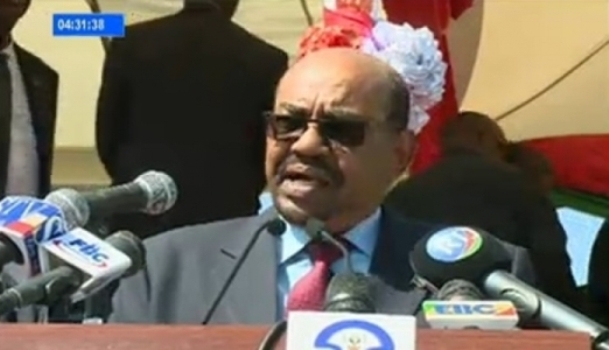Sudan’s foreign policy to be defined by national body: al-Bashir

March 1, 2018 (KHARTOUM) – Sudan’s foreign policy priorities will be set by the National Council for Foreign Policy (NCFP), said President Omer al-Bashir, adding the new body will further restructure the mechanisms of action to improve its performances under the leadership of the presidential diplomacy.
President al-Bashir who is the head of the new body made his remarks in a speech delivered before the annual meeting of Sudanese Ambassadors in Khartoum on Wednesday.
The statements come after reports about a power struggle between the foreign ministry and Awad al-Jaz presidential aide tasked with relations with China, Russia, and Turkey, three countries that Sudan has important economic investments or trade relations with.
Addressing the closing session of the annual diplomatic meeting, al-Bashir told the Sudanese ambassadors that the recommendations of their gathering will be considered by the NCFP which is established last January.
He stressed that the NCFP among others has to restructure the mechanisms of implementation of the foreign policy in order to harmonize their work at all levels in a framework ensuring their good performance under the leadership of the “presidential diplomacy.”
He added that the Council has to set up the procedures ensuring coordination between the (different) bodies of external action according to priorities and programmes determined by the National Council for Foreign Policy.
The NCFP is established in line with the conclusions of the national dialogue conference of October 2016. At the time, several political forces participating in the political process slammed the formation of this body and four other councils all chaired by al-Bashir, saying they lead to the concentration of all the powers in the hands of the President.
But al-Bashir stressed in his speech that this organ will allow the participation of “all the different bodies and institutions involved in the formulation and implementation of the country’s foreign policy. Further, it will unify the visions, consolidate the coordination and adjust harmony for an effective foreign policy,” he added.
He pledged that the NCFP will work out an effective approach to cancel Sudan’s external debt through bilateral relations with creditor countries or within the framework of collective bargaining in international financial institutions.
In October 2017, the United States left the 20-year economic embargo on Sudan and engaged talks on the full normalization of bilateral relations and Sudan removal from the list of countries sponsors of terrorism.
The annual meeting discussed and developed ideas about “economic diplomacy”. While, Minister Ghandour encouraged the Sudanese diplomatic missions to attract foreign investments, developing trade exchanges, activating ministerial economic committees with the host countries, and promoting bilateral businessmen’s committees.
“The biggest challenge facing the country’s foreign policy is the ability of the Sudanese economy to integrate into the global economy,” he said.
In a presidential decree released on 24 January, al-Bashir appointed al-Jaz and Ibrahim Ghandour as members of the council, it also includes the ministers of finance, international cooperation, and the directors of National Intelligence and Security Services as well as other officials including five ambassadors.
(ST)
